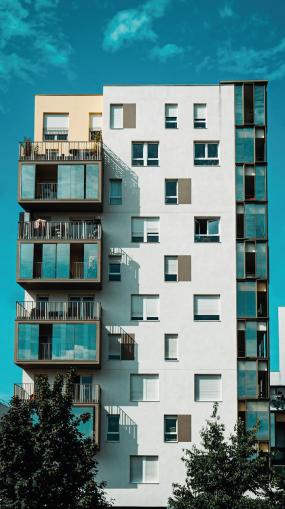A complete Guide to Property Valuation in Egypt: factors & Prices

Evaluating the value of a property in the Egyptian market is a crucial process for both buyers and sellers. Numerous factors influence a property's value, necessitating a deep understanding of the Egyptian real estate market. BY this article bloom real estate will delve into these factors, providing a comprehensive guide to help you make informed decisions.
Factors Affecting Property Value
1) Geographic Location:
Region: Property prices vary significantly across different regions in Egypt. Properties in prime locations and urban centers typically command higher prices.
Neighborhood: Even within the same region, prices can fluctuate between neighborhoods. Prime neighborhoods with ample amenities often have higher property values.
Street: The specific street where a property is located can also influence its value. Properties on main roads or in areas with good access to public transportation are usually more expensive.
2) Property Size:
Total Area: Generally, larger properties have higher values. However, the efficiency of space utilization is also a significant factor.
Built-up Area: The ratio of the built-up area to the total area affects the property's value. Properties with larger built-up areas tend to be more valuable.
3) Property Type:
Residential, Commercial, Industrial: Each property type has a different value. Commercial and industrial properties often have higher values due to their potential for higher returns.
Apartment, Villa, Land: The value of an apartment, villa, or land varies based on factors such as size, location, and amenities.
4) Age and Condition:
Age: Newer properties typically have higher values than older ones. However, the quality of construction and materials used is also crucial.
Condition: The overall condition of the property, including finishes and maintenance, significantly impacts its value. Well-maintained properties command higher prices.
5) Amenities and Facilities:
Basic Amenities: The availability of essential services like electricity, water, and sewage is fundamental to a property's value.
Additional Amenities: Additional amenities such as swimming pools, garages, and gyms can increase a property's value.
6) View:
Sea, River, or Garden View: Properties with scenic views, especially those overlooking bodies of water or green spaces, are generally more expensive.
Street View: A property's view of a busy street can negatively impact its value.
7) Market Conditions:
Supply and Demand: The relationship between supply and demand for properties significantly influences prices.
Inflation: Inflation rates affect property prices over the long term.
Methods of Property Valuation
Comparative Market Analysis: Comparing the property to similar properties that have recently sold in the same area.
Cost Approach: Estimating the cost of replacing the property, considering factors like construction costs and land value.
Income Capitalization Approach: Estimating the property's value based on its potential rental income.
Importance of Accurate Property Valuation
Informed Buying and Selling Decisions: Accurate valuation helps buyers and sellers negotiate fair prices.
Avoiding Financial Losses: It prevents parties from entering into unfavorable deals.
Determining Tax Value: Accurate valuation is essential for calculating property taxes.
Conclusion
Evaluating property value requires a thorough understanding of numerous factors. By considering these factors and employing appropriate valuation methods, you can make informed decisions in the Egyptian real estate market.
- Property valuation in Egypt
- How to evaluate property value
- Real estate prices in Egypt
- Factors affecting property value
- Property appraisal guide
- Property valuation methods
- Apartment prices in Egypt
- Real estate investment in Egypt
- Buying and selling property in Egypt
- How to determine the price of a property in Egypt?
- What factors affect a property's market value?

